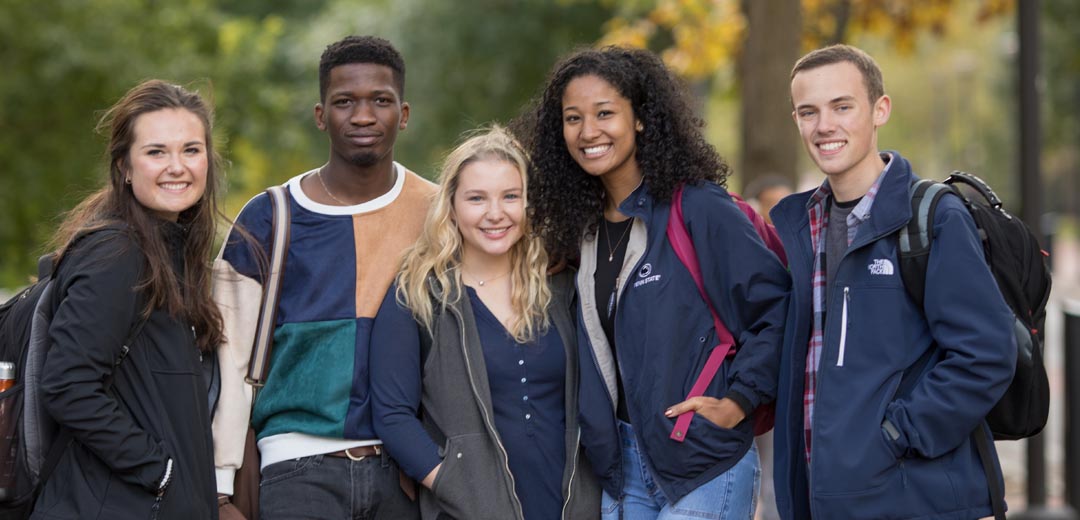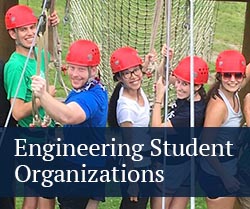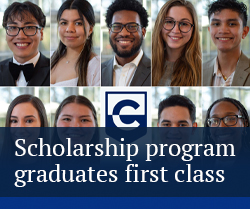
Equity and Inclusion in the College of Engineering
The Penn State College of Engineering is committed to creating a community built on equity and inclusion. The Engineering Equity Initiative is a top priority for the college. Led by the Center for Engineering Outreach and Inclusion in collaboration with academic departments in the college, there are several campaigns underway to build equity starting in primary school through to the faculty at Penn State.
Our events and programs are open to all students regardless of sex, gender, sexual orientation, race, or any other protected class. The College of Engineering is committed to building a community of belonging for all.
K-12 Equity
The Penn State College of Engineering hosts several events to engage pre-college students with science, technology, engineering, and math activities. During the summer, the School of Electrical Engineering and Computer Science hosts two camps open to all genders, with a specific focus on supporting girls as they learn about computer science and electrical engineering.
Student Educational Equity
In addition to the support provided by the Center for Engineering Outreach and Inclusion and the following initiatives, the College of Engineering also hosts an Equity Summit comprised of student leaders from Penn State branches of national organizations and student clubs.
Undergraduate Student Equity Initiatives
The Engineering Equity Initiative initially began as a conversation about gender inequity in undergraduate engineering populations. The national average of women undergraduates in engineering is less than 10 percent. Penn State has more than twice that, with women typically comprising more than 20 percent of the incoming first-year class, but it’s still not close to equity.
The College of Engineering is working to achieve equity across gender and all underrepresented groups in engineering, including minority students, veterans, students with disabilities, LGBTQIA students, and students at the intersection of multiple identities. By more aggressively recruiting talented students to the applicant pool and by offering more substantial scholarships to well-rounded students with excellent standardized scores, the number of underrepresented students enrolling at Penn State is steadily increasing.
In order to retain these highly qualified students, the college has also established the Impact Scholars program. Every student who receives a scholarship is invited to participate in the program. Impact Scholars are individuals who want to inspire change and impact tomorrow by building community and advancing engineering at Penn State and beyond.
Graduate Equity Initiatives
The College of Engineering is committed to fostering community among our graduate students. The College of Engineering is a partner with the National GEM Consortium, an organization that facilitates the participation of underrepresented groups at the master’s and doctoral levels in engineering and science. GEM leads GRAD lab, which helps guide undergraduate students as they consider pursuing a graduate degree.
Penn State partners with the Alfred P. Sloan Foundation through our University Center of Exemplary Mentoring (UCEM). This UCEM is designed to support doctoral students from under-represented minority groups studying science, technology, engineering and mathematics (STEM) fields. The UCEM program offers financial support for 40 scholars across STEM programs.
The College of Engineering also hosts a Multi-Cultural Engineering Graduate Association to foster community among graduate students across STEM programs at University Park.
Faculty and Staff Equity
The College of Engineering at Penn State provides opportunities for people representing a wide variety of identities and backgrounds. Fostering inclusive and diverse engineering faculty is an important component of creating a welcoming, inclusive, and supportive environment for students, staff, and colleagues. In order to further this mission of educating a diverse workforce, we rely on the expertise, sensitivity, and commitment of faculty to enhance diversity, seek equity and create a welcoming environment within our community.
We are committed to nurturing a learning and working environment that respects differences in culture, age, gender, race, ethnicity, physical ability, sexual orientation, and religious affiliation. In welcoming every candidate, we strive to meet the needs of professional families by actively assisting with partner-placement needs.
We are always looking for talented diverse and inclusive faculty and staff to join our community. Explore current academic opportunities here.
-
Related Links
- Equity Action Plan
- Multicultural Engineering Program
- Women in Engineering Program
- Clark Scholars Program
- Student Transition Programs
- Student Research and Graduate Equity
- Sponsorship Opportunities
- Giving Opportunities
- Penn State Faculty Equity Resources
- Senior Faculty Mentor
- Data Digest
- Diversity Education
- Penn State Benefits (including domestic partner benefits)



